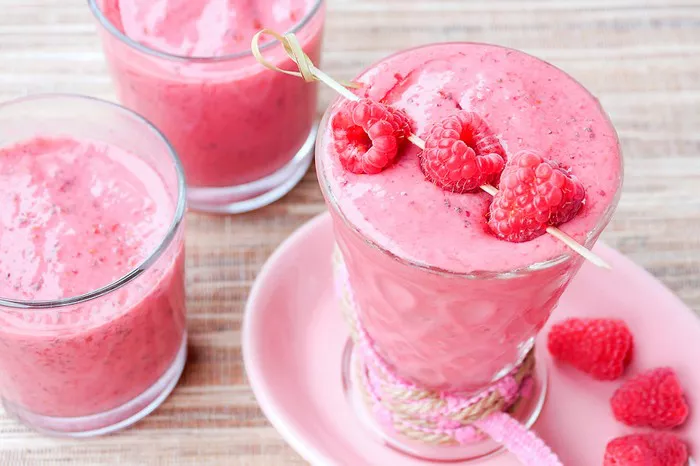Tropical smoothies are often seen as a healthy choice, blending fresh fruits, juices, and sometimes yogurt into a delicious and refreshing drink. However, many people are unaware of just how much sugar can be packed into these seemingly wholesome beverages. Understanding the sugar content in tropical smoothies is crucial, especially for those mindful of their sugar intake for health reasons. This article will delve into the specifics of sugar content in tropical smoothies, providing detailed nutritional information, discussing the health implications, and offering tips on how to enjoy these drinks without overloading on sugar.
SEE ALSO: Is Drinking Smoothies Good for You?
Nutritional Information
Exact Amount of Sugar (in Grams) in Popular Tropical Smoothies
The sugar content in tropical smoothies can vary widely depending on the ingredients used. A typical 16-ounce serving of a commercially available tropical smoothie can contain anywhere from 50 to 100 grams of sugar. For example:
Mango-Pineapple Smoothie: A medium-sized smoothie from a popular chain might contain around 70 grams of sugar.
Strawberry-Banana Smoothie: This classic option can have about 60 grams of sugar in a 16-ounce serving.
Mixed Tropical Fruit Smoothie: A blend of mango, pineapple, and banana can easily reach 80 grams of sugar per serving.
Comparison with Recommended Daily Sugar Intake
The American Heart Association (AHA) recommends that women limit their daily intake of added sugars to 25 grams (6 teaspoons) and men to 36 grams (9 teaspoons). Even a single tropical smoothie can exceed these limits several times over. It’s important to note that the sugars in these smoothies are a combination of natural sugars from fruit and added sugars from ingredients like fruit juices, syrups, and sweetened yogurts.
Breakdown of Other Nutritional Elements
Aside from sugar, tropical smoothies are also rich in other nutrients:
Calories: A typical tropical smoothie can range from 250 to 600 calories per 16-ounce serving, depending on the ingredients.
Carbohydrates: With high sugar content comes a high carbohydrate count, often ranging from 60 to 120 grams per serving.
Fiber: Depending on the fruits used, tropical smoothies can provide 2 to 8 grams of dietary fiber per serving.
Vitamins and Minerals: Tropical smoothies are generally high in vitamins C and A, as well as potassium and other essential nutrients.
Health Implications
Discussion of the Health Effects of Consuming High-Sugar Beverages
Consuming high-sugar beverages like tropical smoothies can have several health implications. Excessive sugar intake is linked to a higher risk of obesity, type 2 diabetes, and heart disease. Additionally, high sugar consumption can lead to increased blood sugar levels and insulin resistance. For those who are trying to manage their weight or blood sugar levels, it’s essential to be aware of the sugar content in these drinks.
Potential Benefits and Drawbacks of Tropical Smoothies in a Diet
Tropical smoothies can be beneficial when made with whole fruits, as they provide essential vitamins, minerals, and fiber. However, the high sugar content can offset these benefits if consumed in large quantities or if made with sugar-laden ingredients. The drawbacks of consuming tropical smoothies primarily stem from the risk of overconsumption of sugar and calories, which can contribute to weight gain and other health issues.
Tips for Choosing or Making Lower-Sugar Tropical Smoothie Options
Use Whole Fruits: Whole fruits contain fiber, which helps slow down the absorption of sugar into the bloodstream. Opt for fresh or frozen fruits rather than fruit juices or concentrates.
Avoid Added Sugars: Skip ingredients like flavored yogurts, honey, and syrups, which can significantly increase the sugar content.
Incorporate Vegetables: Adding leafy greens like spinach or kale can boost the nutritional value without adding sugar.
Use Unsweetened Bases: Choose unsweetened almond milk, coconut water, or plain yogurt as the base for your smoothie.
Comparison with Other Beverages
When compared to other beverages, tropical smoothies are often higher in sugar. For example:
Sodas: A 16-ounce soda typically contains about 52 grams of sugar.
Fruit Juices: A 16-ounce serving of orange juice contains around 44 grams of sugar.
Other Smoothies: Smoothies made with vegetables or lower-sugar fruits like berries can have significantly less sugar, sometimes under 30 grams per serving.
Highlighting the Difference Between Added Sugars and Natural Sugars in Smoothies
It’s important to differentiate between natural sugars found in whole fruits and added sugars from syrups or juices. Natural sugars come with fiber and other nutrients that help mitigate their impact on blood sugar levels, whereas added sugars can contribute to rapid spikes in blood sugar and increased caloric intake without the accompanying nutritio
nal benefits.
List of foods containing sugar
Fruit Juices: Often used as a base, fruit juices can add a significant amount of sugar. A single cup of orange juice, for example, contains about 21 grams of sugar.
Syrups and Sweeteners: These are often added for flavor but can drastically increase the sugar content.
Sweetened Yogurt: Many smoothies include flavored or sweetened yogurt, which can add 10-20 grams of sugar per serving.
High-Sugar Fruits: Mangoes, pineapples, and bananas are popular in tropical smoothies but are also high in natural sugars.
Suggestions for Reducing Sugar Content
Swap Out Fruit Juices for Water or Unsweetened Milk: This can significantly reduce the sugar content without sacrificing taste.
Use Low-Sugar Fruits: Berries, avocados, and citrus fruits like lemons and limes are lower in sugar and can still add flavor.
Limit the Amount of High-Sugar Ingredients: Use smaller amounts of high-sugar fruits or balance them with low-sugar alternatives.
Recipes
Provide Examples of Popular Tropical Smoothie Recipes and Their Sugar Content
Mango-Pineapple Smoothie: Contains 75 grams of sugar per 16-ounce serving.
Strawberry-Banana Smoothie: Contains 60 grams of sugar per 16-ounce serving.
Tropical Green Smoothie (with Spinach and Kale): Contains 40 grams of sugar per 16-ounce serving.
Offer Alternative Recipes with Reduced Sugar
Low-Sugar Tropical Smoothie: A blend of unsweetened almond milk, spinach, a small banana, and a handful of strawberries contains only 25 grams of sugar.
Coconut-Lime Smoothie: Using unsweetened coconut water, fresh lime juice, and a small amount of pineapple can keep sugar content under 20 grams.
Conclusion
Tropical smoothies can be a delicious and nutritious addition to your diet, but it’s essential to be aware of their sugar content. By making informed choices and opting for lower-sugar ingredients, you can enjoy these beverages without compromising your health goals. Whether you’re grabbing a smoothie on the go or making one at home, being mindful of the sugar content can help you enjoy your drink in a healthier way.
Related Topics:



























